Hey,
One of my favorite pastimes is to watch TV and point out—sometimes only to my dogs or cat if I’m otherwise alone—actors who were in other shows or movies. For instance, the other day I was watching the part of The Silence of the Lambs when Hannibal Lecter is in custody in Memphis. When one of the cops—the one who asks Clarice Starling if Lecter is a vampire—appeared on-screen, I shouted, “That’s the Sidler from Seinfeld!” The dogs didn’t care. Nor did they seem impressed that I knew that Lt. Boyle, who (along with poor Officer Pembry) brings Lecter his plate of lamb chops, was the singing space hippie from Star Trek and the regrettably tardy Tucker McElroy, the lead singer of the “Good Ole Boys” in The Blues Brothers.
But none of that is important right now. Another, perhaps more relevant pastime of mine is to point out to people that “constitutional” and “good” or “right” aren’t synonymous terms. This can be a weird thing to point out to people out of the blue.
“How are your steaks, gentlemen?”
“They’re excellent, but you do know that something can be bad and constitutional at the same time, right?”
But sometimes the moment calls for just such an observation.
As a non-paying reader, you are receiving a truncated version of The G-File. You can read Jonah’s full newsletter by becoming a member here.
Let’s set the stage a bit, and unlike Bob’s Country Bunker, we won’t even have to put up chicken wire (I hope).
In 1992, Justice Clarence Thomas was widely vilified for his dissenting opinion in Hudson v. McMillian. There’s no need to get into the weeds. But, very briefly, a prison guard beat up a prisoner, and the prisoner claimed his Eighth Amendment rights against cruel and unusual punishment had been violated. Thomas argued that while the beating may have been illegal, immoral, and tortious (i.e., the inmate could sue), it wasn’t severe enough to cross the constitutional threshold of “cruel and unusual punishment.” He added:
Today's expansion of the Cruel and Unusual Punishment Clause beyond all bounds of history and precedent is, I suspect, yet another manifestation of the pervasive view that the Federal Constitution must address all ills in our society. Abusive behavior by prison guards is deplorable conduct that properly evokes outrage and contempt. But that does not mean that it is invariably unconstitutional. The Eighth Amendment is not, and should not be turned into, a National Code of Prison Regulation.
I’m not a lawyer, so I’m open to the idea that Thomas was in some way wrong on the legal merits (the decision did go the other way), but the principle he elucidates here is completely correct. A policy can be very bad but legal, or simply illegal under state or federal law, without being unconstitutional.
But there is a widespread tendency in America to think that anything good must be constitutional and anything bad must not be.
As Dr. Who, Doc Brown, or Peter Potamus must have said at some point, let’s get more recent. Let’s start with the Federal Reserve. The president is waging—to an unprecedented degree—a public war on the Federal Reserve.
Note: I said the degree is unprecedented. Presidents and politicians have pressured the Fed in the past, but this situation is obviously different. Threatening to fire the chair and actually firing a governor (who is fighting the termination in court) on a pretextual basis with the express intent to load the Fed with supplicants who will do his bidding is beyond anything Nixon did with then-Fed Chair Arthur Burns (and, remember, what Nixon did with Burns was outrageous, all the same).
I think Trump’s jihad against the Fed is stupefyingly ill-advised politically and as policy. Politicizing the Fed is bad for any president. But given Trump’s mercurial nature (understatement, for the win!) and his contempt for advice (and advisers) he doesn’t want to hear, Trump’s jihad threatens to undermine faith in the soundness of the American financial system (The Economist has a good piece on this).
Remember: Nixon’s successful arm-twisting of the Fed was a major contributor to the “Nixon shock” that ushered in a decade of stagflation.
That’s partly why I also think his attacks on the Fed are politically stupid. I don’t know—no one does—what the full effects of the president’s tariffs will be. Nor do we know if he would—or could, even with a more pliant Fed—get a massive one-time rate cut. But what is pretty obvious is that if Trump conquers the Fed, he will then own the economy in ways no president has in our lifetime. If the economy doesn’t soar or, if inflation returns, he might prattle on about corporate “greedflation” or the Deep State or some other conspiracy against him (remember he suggested COVID was a plot to hurt his presidency). But no one would believe it.
But you know what? I think Trump can fire members of the Fed. I don’t mean that the courts will cooperate with him. They’ve been signaling as best they can that he shouldn’t try. In 2024, Justice Samuel Alito wrote in a footnote that the Fed is “a unique institution with a unique historical background … a special arrangement sanctioned by history.” And in May, the court declared in a ruling that the “Federal Reserve is a uniquely structured, quasi-private entity that follows in the distinct history tradition of the First and Second Banks of the United States.”
Maybe that’s right. Again, I’m not a lawyer and I left the section on the Second Bank of the United States on my 11th grade history test blank. All I can say is my view stems from the fact that I think the Federal Reserve resides in a constitutional null space. If it’s part of the executive branch, then the executive has the power to fire its members. I don’t agree with Trump’s version of the unitary executive, but I do broadly subscribe to the view that the executive is unitary.
I have been content to live with the Fed as an extraconstitutional appendage mostly because I have no choice. Similarly, I don’t like North Korea’s regime or the general availability of black licorice, but it’s not like I can do anything about that stuff either. Moreover, unlike the Kim regime and the Orc jerky that is black licorice, I don’t spend a lot of time complaining about the Fed’s existence because I think it serves a very useful purpose and has served America well, all things considered. Indeed, I’d welcome a constitutional amendment creating an independent central bank largely along the lines of what we have now.
My only point here is that originalists often get accused of liking originalism only because it furthers their political or policy agenda. My view is that Trump’s political and policy agenda is bonkers, but that doesn’t mean it’s unconstitutional.
Tipp(ing) Point
Let’s move on to what put me on this path in the first place. I get emails (ones I never subscribed to) from something called TIPP Insights, an outlet I’ve heard name-checked a few times on Fox News. I got one yesterday titled “Trump’s Marbury v. Madison Showdown.”
I read it and was appalled.
The editors write: “While the legal arguments against the Trump tariffs may be strong, the Supreme Court should not decide this case based only on the underlying law.”
They continue: “Here is where the justices must do what is politically expedient: push through a policy that could benefit the country, even if the benefits of doing so are not immediately apparent.”
Then they recount how the Roberts court saved Obamacare. And they think that was bad for policy reasons I can get behind. But if you remember that brouhaha, conservatives were also appalled by the legal arguments—legislating from the bench—that Chief Justice John Roberts used to rescue a bad policy. The editors offer no such objection because they want the court to do the same thing for Trump’s tariff agenda.
They also say some truly barmy things to make their case for defying the Constitution. Trump’s executive order on tariffs, they write, “suffers from none of the pie-in-the-sky promises that President Obama made when trying to sell his plan to Congress, such as insisting that patients could keep whichever doctor they wanted.”
Um, what? Trump has literally said the tariffs are paid by other countries and that they have already taken-in “TRILLIONS OF DOLLARS.” He insists tariffs will restore manufacturing in America and usher in a new Golden Age. His subalterns routinely suggest it could replace the federal income tax.
That’s not pie-in-the-sky, it’s a whole chain of bakeries in permanent orbit around planet Earth. Moreover, “pie-in-the-sky” political promises are not a remotely relevant legal or constitutional standard.
In short, I think the TIPP editorial is profoundly silly. But I also think it’s usefully representative of the ideas swirling around the right these days. They just state it plainly: The courts should ignore the Constitution and the law if doing so serves the interests of Donald Trump and his agenda. When Treasury Secretary Scott Bessent says the court shouldn’t overrule Trump on tariffs because it would be “embarrassing” or when Trump says a bad court decision in the matter would “literally destroy America,” the upshot is that the president’s ego and policy preferences are superior to the Constitution.
I think America is more than the Constitution, but such thinking would put us on a far more direct path to destruction than rescinding some boneheaded tariffs that have been on the “books”—not the law books, mind you—for a few months.
I know I’m an irrelevant relic of the past (in part because people tell me that every day), but I still believe that the arguments conservatives once used against the left’s constitutional schemes are correct even when you gussy them up in right-wing language. So-called “common good constitutionalism” is living constitution nonsense with a MAGA coating and nothing more.
We used to say that the court cannot be a tribunal of robed priests that simply “do the right thing” on every issue from economics to religion to child welfare. If that were the court’s function, why the hell would we stock it exclusively with lawyers of all people? Why not just put nine philosophers or sociologists on the court? When Justice Roberts saved Obamacare out of political expediency, conservatives were appalled. Matt Schlapp, the head of the American Conservative [sic] Union proclaimed: “I’m for impeaching the Chief Justice for lying to all of us about his support of the Constitution. He is responsible for Robertscare and now he is angling for vast numbers of illegal residents to help Dems hold Congress. Enough Deception from GOP judges on the Constitution.”
Now the argument seems to be that Roberts should do the same thing for our team.
I don’t know if the editors at TIPP sincerely love protectionism or if they just have an unbounded faith in the wisdom and expertise of Donald Trump to dictate the rules of the global trading system in every regard. But the gist of their argument is the same. They think the legal arguments against Trump’s tariffs are strong, they just don’t care. The court should just do “what could benefit the country.” And bailing out Trump’s tariffs would do that because reasons.
I have a lot of respect for many of the justices. They know a lot of stuff I don’t. And not just on law stuff. I wouldn’t be shocked if many have much better-informed views than I do on trade policy and economics generally. But that’s not why they are there. If we wanted the Supreme Court to be experts on Ricardian comparative advantage, the Supreme Court confirmation process—and the nominees—would look very different.
Call me crazy or a pie-in-the-sky idealist, but from my little corner of the remnant, my view is pretty simple. I think the court should follow the law and the Constitution.
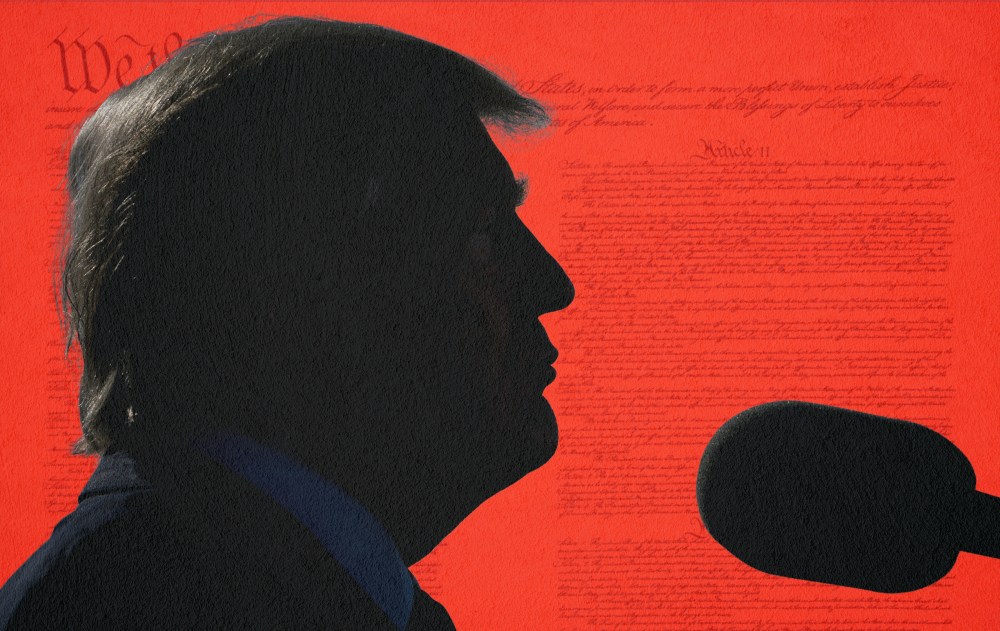


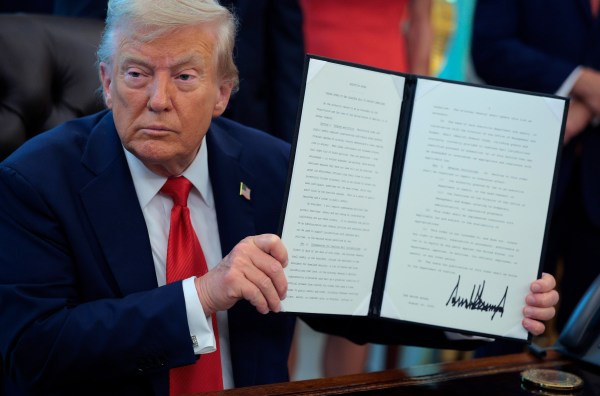

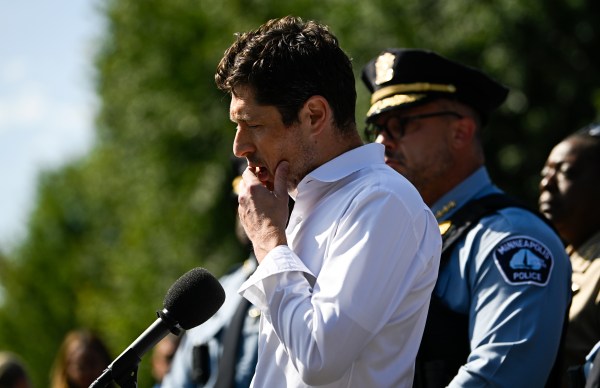
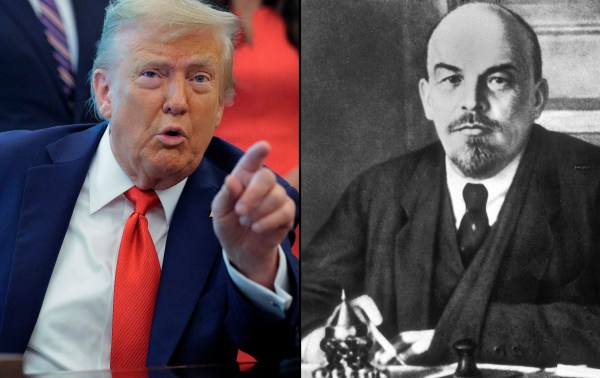
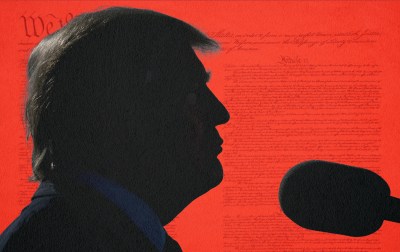
Please note that we at The Dispatch hold ourselves, our work, and our commenters to a higher standard than other places on the internet. We welcome comments that foster genuine debate or discussion—including comments critical of us or our work—but responses that include ad hominem attacks on fellow Dispatch members or are intended to stoke fear and anger may be moderated.
With your membership, you only have the ability to comment on The Morning Dispatch articles. Consider upgrading to join the conversation everywhere.